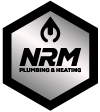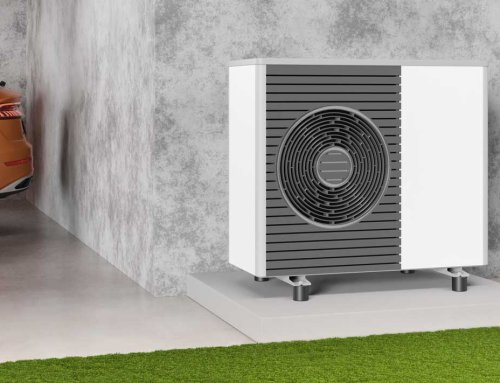What’s the best choice for the boiler replacement Dublin homes need? Winter is just around the corner, which means it’s time to start preparing for the cold months ahead. Most people know that ensuring your central heating is working is necessary, but what do you know about your boiler?
Boilers are an essential part of any home, providing hot water for baths and washing up and powering the radiators that provide heat throughout the house.
If your boiler is quite old, leaking, making odd noises, or simply isn’t working as it should, it might be time for a new energy-efficient boiler. But there are many different types of boilers with varying levels of efficiency, so how do you know which one to choose?
What Are The Different Types of Boilers?
Boilers are initially categorized by the type of fuel they use to generate heat – gas, oil, or electricity. There are pros and cons to each fuel type, and some boilers are only suitable for certain types of homes or homes in specific locations.
For boiler replacement Dublin homes can use, you need to choose the right type of boiler.
In the middle of a town, there’s a strong chance that your home will be connected to mains gas and electricity, giving you an option. However, if you live in an area with mains gas or electricity, you may need to use an oil boiler with the oil stored in a tank on your property. A gas boiler can also run this way by using a tank of LPG – but this is less common than the oil option.
Each boiler is then categorized into condensing boilers (very efficient) and non-condensing boilers (less efficient) within their respective fuel types. Condensing boilers are often slightly more expensive – but you can get back the extra cost in terms of savings on bills, as they are more efficient.
In simple terms, condensing boilers capture some of the heat that would typically go to waste and reuse it. This can help retain up to 30% of the heat that would otherwise be lost.
Boiler Replacement Dublin – The Pros and Cons of Each Boiler Type
Aside from the availability of the fuel source, boiler types are very similar. Therefore, the new boiler replacement Dublin homes need to get depends on personal preference and lifestyle factors such as noise output or home location.
Gas boiler pros
- Boilers that use gas can be fitted quickly and easily in most cases.
- Gas boilers tend to be the cheapest boiler type to install as historically, they have been the most common choice.
- Gas boiler equipment has a good track record, with many manufacturers offering extended warranties of up to ten years.
Gas boiler cons
- Gas boilers can be noisier than other boiler types, but modern technology reduces any sounds you can hear.
- If the boiler is not maintained correctly or is damaged, there is the possibility of carbon monoxide poisoning.
- Gas is a fossil fuel and therefore has an impact on the environment.
Oil boiler pros
- Oil boilers are also relatively easy to have installed by a professional.
- Oil boilers are also very quiet, even more so than gas boiler systems.
- You can shop around for the best-priced oil, far more straightforward than changing your gas or electricity supplier.
- Oil boilers can be installed outside.
Oil boiler cons
- An oil tank will be required to store the fuel for the boiler.
- Oil is a fossil fuel and has an impact on the environment similar to gas.
- You may need a chimney for exhaust gases generated by the oil boiler.
- Oil Boiler installation can be expensive, but overall savings can counteract this.
Electric boiler pros
- Electric boilers are excellent for homes off the gas grid (although they can be fitted in homes connected to mains gas too).
- They are generally smaller than other boiler types.
- They work well in flats and apartments as there’s no need for an oil tank or piping to get gas to the boiler.
- They don’t need a flue or chimney and therefore don’t need to be installed on a specific wall.
- Electric boilers require little maintenance and tend not to break down as much as other boiler types simply because there are fewer moving parts, leading to less wear and tear.
- There are no emissions and no chance of carbon monoxide poisoning
- With the right energy supplier, the boiler could be powered (at least in part) with renewable energy
Electric boiler cons
- Electric boilers may struggle to meet the heating demands of larger properties.
- Most electricity is still generated through burning fossil fuels, so even electric boilers can impact the environment.
- During a power outage, an electric boiler will not be able to function.

NRM Plumbing Heating and Gas Boiler Replacement, 26 Glendoo Close, Walkinstown, Dublin 12. D12E7N9. Phone: +353 1 535 29 48. Mobile: +353 87 990 89 13
Which Should You Choose?
If you have the option of choosing any boiler type, it can come down to personal preference. In theory, electric boilers will have a lower impact on the environment but can’t necessarily meet the demands of large homes or large families.
A gas boiler is the cheapest option for upfront costs, but long-term costs will depend on the price of energy in the future. Oil may be more affordable than gas, and electric may be cheaper still, but it will all depend on your energy supplier.
For most people, boiler replacement in Dublin is on a like-for-like basis. If you’re happy with your boiler, there’s no need to change it for a different type. Simply replace it with the same kind of boiler and gain a boost of efficiency.
Boiler Replacement Dublin – Do You Really Need To Replace Your Boiler?
At one time, boiler replacement Dublin homes needed was because of breakdowns or boiler age. However, that’s no longer the only reason to replace your boiler – efficiency may be important, especially with rising energy prices.
A boiler should be serviced regularly to maintain safety and efficiency. Still, even with regular maintenance, efficiency can drop over time – and the boiler replacement Dublin homes need will make sure that you have the most efficient boiler possible.
Contact the boiler experts and Plumbing Dublin – NRM Plumbing and Heating to determine the best boiler for your individual requirements. Our experience allows us to choose the boiler replacement Dublin residents need.
Central Heating Radiators – You may never have given much thought to central heating radiators, your old radiators may be costing your money. Check out our latest blog post for full details.







